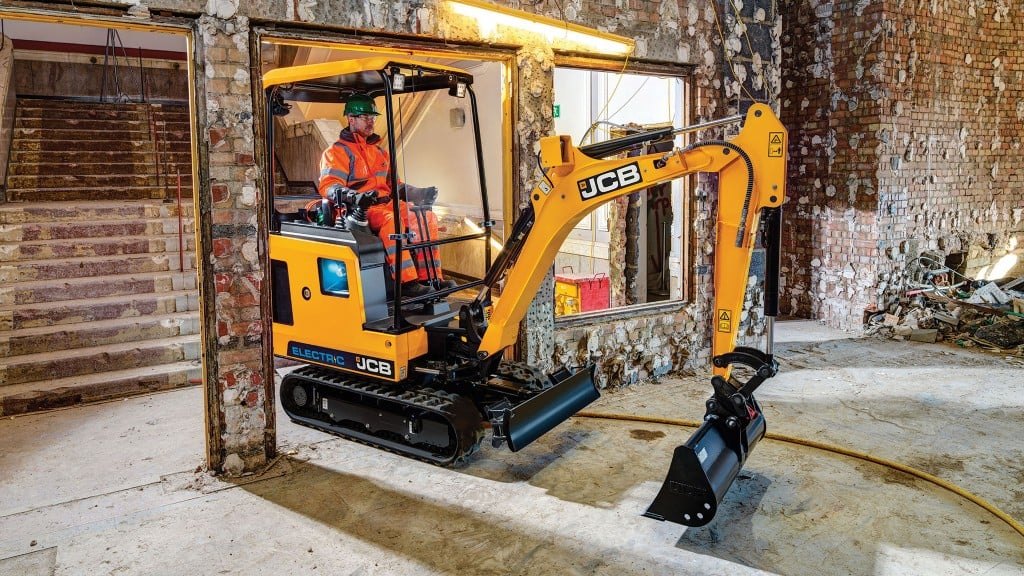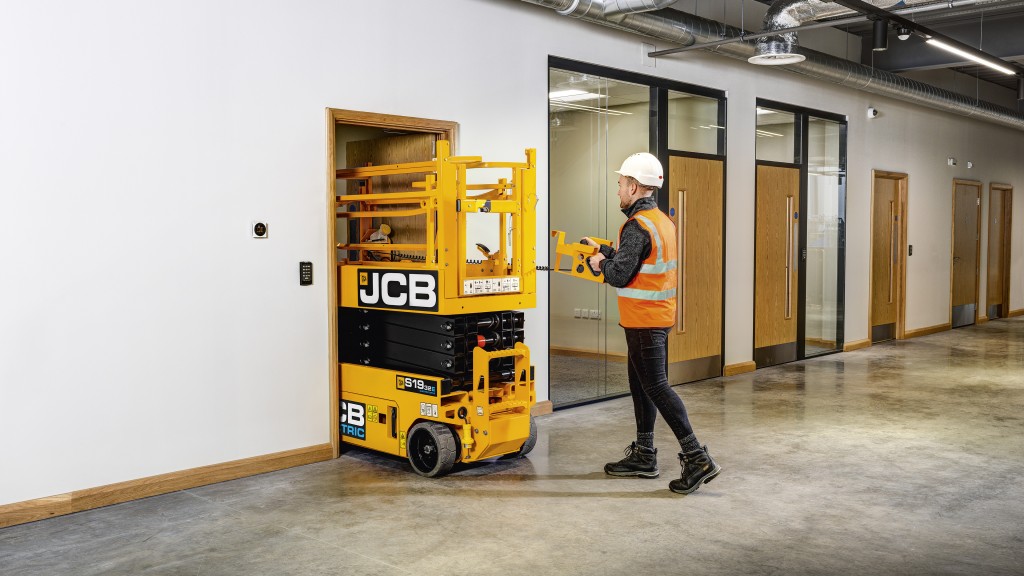
Over the past five years, JCB has stood out as a leader in electrification for the construction industry. Since the introduction of its first electric excavator, the 19C-1E in 2019, the company has expanded its E-TECH product line to include scissors, a telehandler, site dumpers, and more. Heavy Equipment Guide caught up with Lee Tice, senior product manager, at ARA to discuss electrification and it growth, the role of the rental market, and opportunities presented by the product line.
Ken Singer: How has the market for electric construction equipment changed since JCB introduced its first electric mini excavator, the 19C-1E, in 2019?
Lee Tice: There has really been learning and growth with that machine. Obviously since that time we've launched additional electric models and taken that same technology and the learnings from the 19C-1E and all its success and we have incorporated that into the other products that we launched. It's essentially a journey into this electric product world. Electric vehicles are commonplace and construction equipment's catching up with that. We're all on a journey together, really, in the Off-Road to Zero, as we call it. It's been really well received in the market, and the 19C-1E has been extremely popular and I believe we're well over a thousand machines in the field now, so it's fantastic.
KS: What role does the rental market play in the growth of electric construction equipment?
LT: We are at the rental show for an entirely new machine, the S1932ED electric drive scissor lift, which understandably is a different type of offering. Prospective customers are able to get their hands on the machine, try it out, and take that route of adoption through the rental channel. The rental market is extremely huge and valuable to those customers where it's something that's unknown. You hear about an electric product and think "it may not do what I need it to do." Well, the rental sector is obviously a great opportunity to go out and try it and understand that there is no loss in performance by going to a zero-emission electric-powered machine. You're not going to lose anything that you would have on the diesel counterpart. You just gain additional opportunities where you can use the machine and when you can use the machine. The rental market is extremely valuable when it comes to getting this into customers' hands. It makes it more obtainable. They're not having to go out and buy the machine right off the bat. They can try it, say, "yes, this is right for me," and then make the decision.
KS: Are you surprised at the degree to which the large rental houses have embraced electric machines?
LT: I don't know if I'd say surprised, but it's definitely a rewarding feeling that they have embraced it because it's all like one team here. It's not just us out here pushing these machines into the market. They have the same goal that we have with Off-Road to Zero. It really feels like a partnership with it, where we're not in this alone, fighting this battle, pushing electric machines into the market. They're on board with us and they're supporting us.
KS: How many electric machines do you have operating in North America and what applications are they working in?
LT: Over a thousand are operating in North America in the U.S. and Canada. So obviously the first thing everybody thinks of with an electric machine is "now I can run this machine indoors," which is a great application for it that still holds true to this day, but there are so many more. For instance, the Kentucky Derby. They use our 505-20E electric telehandler at the Kentucky Derby because it's zero emission, so you're not having fumes around the horses, and you don't have the noise to scare the horses. It goes the same for actors because on a movie set they don't want diesel machines running.
We also have a customer in Georgia, and he was an "I'm gonna always burn diesel fuel" guy. He got a contract with a Walmart 24/7 retail store where he's doing work while customers are in the store during business hours, so he went out, got an electric machine, and he loves the things it does. He's got it in the store working around customers. They cord off an area and they can do utility work on the floor. Those unique applications are a really interesting, exciting part of that product and they continue to grow.
KS: What is the role of regulatory requirements in driving the adoption of electric machines?
Some contractors are playing catch up and they're caught off guard when they get hit with some of these regulations, but there are a lot of them that are pre-emptively saying, "Hey, this is coming. We need to get ahead of it and be prepared to lead that market."
There is an increasing interest in tracking carbon emissions. Once that is tracked, the industry can put a metric to it.
In the Netherlands it's a requirement now in your bidding documents to give the customer an estimated carbon footprint, including all of the diesel fuel you buy. I don't think it's been turned into a regulation on what you can use, but they will evaluate the bid documents and see who's got the lowest price, and more than likely who's got the lowest carbon footprint. I think you'll see a lot more of that coming in the future. There are a number of global organizations looking at this, and it's almost certain that California will be one of the first states in the country — maybe California, Washington, or Oregon — who will start adopting either these bid documents or actually regulating.
KS: What else is important for people to know about electric machines?
LT: The big one is instantaneous torque. You no longer have to increase RPMs to get the pump spinning and increase the flow to the machine. It's basically proportional off a joystick or the throttle pedal. It's a well-received feature of the electric product. And then it's understanding that there's no loss in performance, at least for the JCB electric products. When we're looking at these machines and we're going through the design phases, we want this machine to be as close as possible to the diesel version. So from a lift capacity or a breakout force, eight hour runtime, that's what all the machines are designed around, and that's what we've delivered with all the electric products we have. We would like customers to know that you're not going to lose anything by going to the electric product. You're just getting a zero-emission, low-noise machine that opens up doors to work in different applications — maybe some places that you couldn't work prior to having an electric machine.



